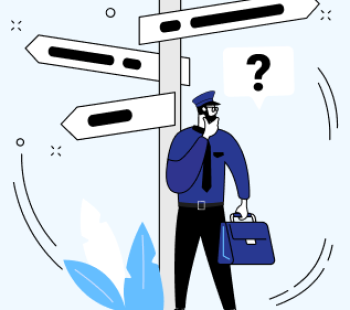Familiarity Is Our Friend
A few nights ago, I was in a group text with some of my best friends, guys that I have known for 35 years. These impromptu text sessions usually spring up over a sporting event or some other topic that gets someone’s attention and is considered worthy of comment or just an excuse to get a conversation going.
In most cases, the directions of the texts trend toward a competition to make the funniest comment or inject the most outrageous gif. This night was no exception. At one point, somebody texted something innocuous and then shortly after texted a “didn’t mean any offense” follow-up. The following reply was what got my attention because it was immediate and heartfelt.
“There isn’t anything that you could say to this group in this setting that would be offensive or taken the wrong way.”
Before we go any further, let me be clear. There are obviously boundaries and limits for what is considered appropriate behavior and I have no interest in crossing them or even walking up to the line. My point is to draw attention to how familiarity influences our perceptions and how we would all benefit if we made more people and things familiar to us.
My friends know me for exactly who I am. They know, without exception, how I feel about them, and that I would do anything for them. That familiarity forms the basis of every interaction we have whether we are texting or in person and whether we are together in an informal or formal setting. The ease of our interaction reflects that.
We long ago figured each other out and the strength of our friendship has endured our entire adult lives and through every experience our lives have presented to us.
While we may, at times, deliberately point out our worst traits, most regrettable moments, and times of embarrassment for the sole purpose of making fun of or mocking one another; there is never a shred of malice present, nor do we ever take ourselves too seriously.
Imagine what it would be like if you knew what was in the minds and hearts of everyone you interacted with on a regular basis. How empowered would you be if you took the time to study current events and topical happenings and understood the facts instead of succumbing to fear generated by misleading headlines or someone else’s agenda? That level of familiarity would undoubtedly cure many ills, wouldn’t it?
What I am essentially saying here is that our world would be a lot simpler if we took the time to make the unknown known to us. We do not fear the known. Things that are familiar to us are typically a source of comfort. Our routine is not a source of angst.
While your heart may race a bit faster when you think you may be lost and you find yourself in an unfamiliar setting, you are likely never fearful on your normal route to and from work.
You may experience some anxiety when you are expected to attend an event where you don’t know anyone, but you are likely very relaxed when you are in the presence of your family or close friends.
If you are asked to complete the same report that you complete every month, it is probably not a problem for you. If you are asked to make a presentation to the executive management team of your company for the first time, you’re likely going to feel butterflies in your stomach and some concern over how it will go.
When you take the time to get to know someone and to understand more about who they are and what they believe, you will be far less likely to be adversaries unless, your intent is to be adversarial or to take exception to a person or a statement.
I know there are causes and people who support those causes that thrive when there is controversy, turmoil, and the appearance of a large division of opinions and views. I just don’t subscribe to the theory that people who profit from other people’s difficulties and misfortunes are representative of the rest of us. I believe that we are much more united in our beliefs and values than we are sometimes led to believe, especially lately.
There is plenty of room for alternative viewpoints, diverse approaches, and fresh ideas and these viewpoints, approaches, and ideas are more likely to be visible to us if we take the time to understand them and get familiar with them. Once we know something, whether we agree entirely with it or not, we will no longer fear it and are less likely to take exception to it.
So, the task is to make the unfamiliar familiar.
When you become familiar with someone, it will not guarantee that you will like them or even agree with them, but it will ensure that you become more educated about them and that you have a clearer perspective of who they are.
When you become familiar with a subject, you will be in a much better position to develop thoughts and make decisions that are based on facts.
When you realize that very few people are extremists and very few subjects can be defined as one shade of black or one shade of white, you will certainly identify more room for common ground. Whether you actually find it is not as important as the mindset you are in when you are looking for it.
Once your focus has shifted from fear of what you don’t know to a search for familiarity and what you would like to know, you will undoubtedly spend far less time being scared or offended and a lot more quality time enjoying the simplicity and strength you have gained from a greater familiarity with the world around you.
Scott Arney
Chief Executive Officer
Chicago Patrolmen’s Federal Credit Union
Editor’s Note:
As a companion piece to this article, please read Mr. Arney’s article entitled, Fear is our Enemy.
Don’t forget, members of the Credit Union enjoy free and confidential Credit Counseling and Financial Planning through our Financial Planning and Education Center. We are here to assist you every step of the way.








